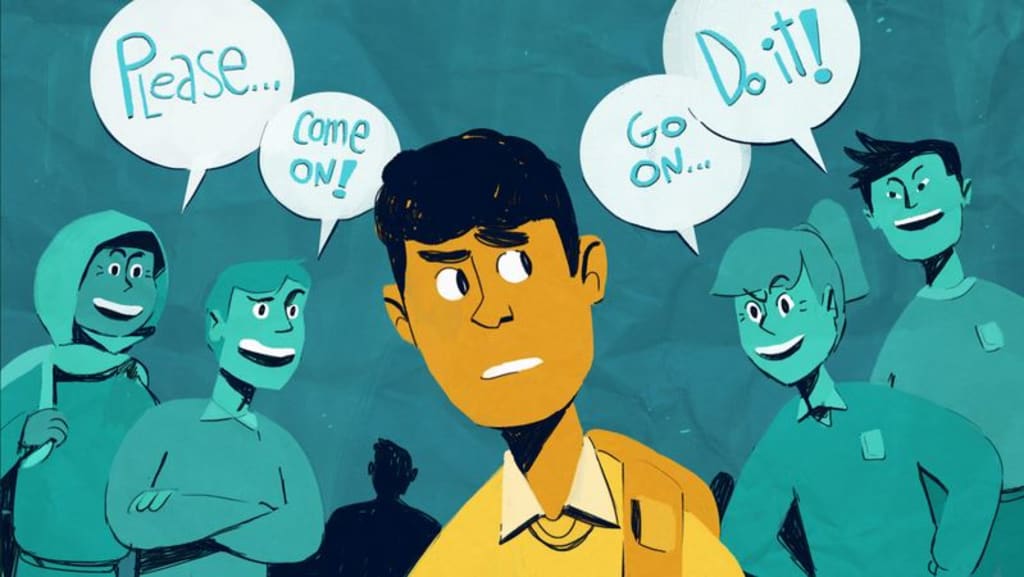Understanding and Identifying Peer Pressure
Knowledge is power; understanding anything makes it much easier to deal with. The same holds true with peer pressure. Knowing what it is, grasping why it happens, and learning how to spot it can empower students to better handle it.
Peer pressure is the direct influence on people by peers, or the effect on an individual who gets encouraged and wants to follow their peers by changing their attitudes, values or behaviors to conform to those of the influencing group or individual
Peer pressure can be both bad and good; the problem is that it’s not always all one way or all the other, and it can be difficult for students to sort through messages that may seem to have conflicting outcomes.
- Drinking is common in college, but how much a person drinks often depends on the company they keep. When social drinking is reinforced by valued friends, a student may find it difficult to refuse alcohol; conversely, if their peers disapprove or alcohol use or do not drink at all, a student is more likely to drink only on occasion or abstain entirely.
- If college students believe their peers approve of smoking, they are more likely to engage in smoking tobacco or using smokeless tobacco products. In fact, the perceived approval of peers is the strongest predictor of tobacco use among college students.
- The way a student perceives their friends’ sexual activity and attitudes toward sex has a strong influence on how they view their own sexual choices. Those who partake of the ‘hookup’ culture in college often do so upon the advice or expectation of their peers.
How to Avoid and Resist Negative Peer Pressure
- Spend time with those who resist peer pressure You’ll learn who they are quickly; they’re the ones who stand up for themselves even in the face of bullying. These are the people you want in your corner.
- Learn how to be assertive Learn to say “No” in a way that’s calm and convincing.
- Ask for help if necessary If you’re faced with relentless bullying, don’t simply wait for it to go away. Reach out to a teacher, mentor, parent or counselor to get some help with the problem.
- Get out of the situation When a situation begins to turn bad—such as a group of people doing risky things—bow out of the situation as soon as you can. Have an excuse ready that you can use if you need to.
- Choose friends carefully Remember, a true friend won’t push you to do something that makes you uncomfortable. And when it comes to resisting negative pressures, it helps to have a buddy. Agree that you’ll have each other’s backs on certain things, such as not drinking too much.
- Use the delay tactic Rather than answer immediately, say you’re going to think something over first. That time buffer makes your eventual “no” less of a surprise.
- Think ahead If you know there will be drugs or alcohol at a party, decide in advance how you will handle it, or make other plans.
- Provide your own positive pressure Rather than simply fighting against negative pressure, focus on providing a positive alternative. For instance, counter a fraternity party invitation with a proposal to go see a movie instead.
- It’s okay to be alone Sometimes we give into peer pressure to avoid feeling lonely. But spending time with yourself is a way to rejuvenate and reinforce your own priorities.
- Go with your gut If something doesn’t feel right for you, then it’s not. Period.








